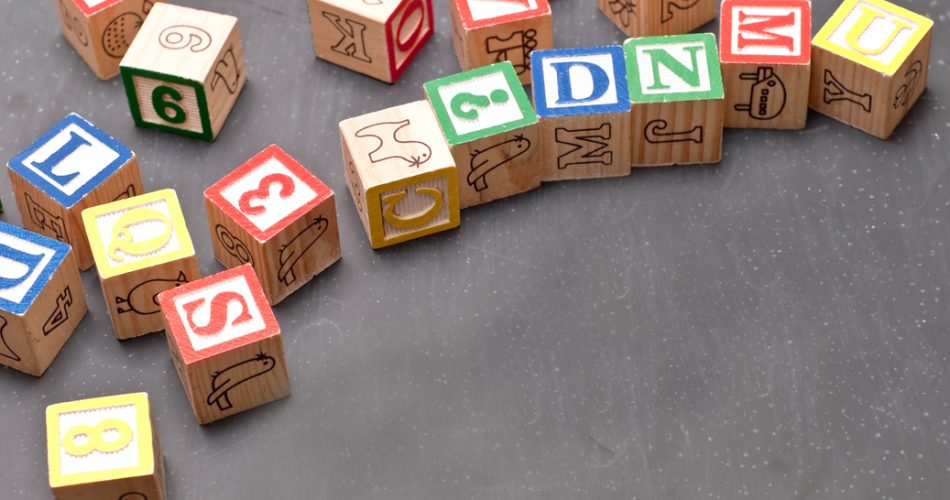Did you know that preschoolers are three times more likely to be expelled than children in kindergarten through 12th grade? In many cases, preschoolers are suspended or expelled due to challenging behaviors that educators feel unequipped to handle.
When faced with behavior challenges in your classroom or care group, it’s important to know you are not alone. Here are three ways to get you and your staff equipped with supportive resources.
Gather Information to Provide Individualized Care
Best of Care Form
One way to help prevent behavior challenges in the classroom or care group is to gather background information about each child you enroll to provide individualized care. The Best of Care Form (available in English and Spanish), developed by the Arizona Department of Economic Security (ADES) Child Care Administration, is an intake form designed to provide insight into each child’s needs and experiences. The form can be found at the DES documents center by searching for “best of care.” After the form is filled out, be sure to share it with all caregivers working with the child to help provide care that is responsive to the child’s needs.
Healthy Foster Care America Tip Sheet
In addition, children who have experienced trauma often exhibit challenging behaviors as a response. Having information about a child’s previous experiences, including involvement with the Department of Child Safety, law enforcement or other traumatic experiences can help caregivers provide responsive care. Teachers and caregivers should be informed of this type of history, as this can help them understand and respond to trauma behaviors that children may exhibit. This information should be handled sensitively and not shared with others who do not provide care for the child. Healthy Foster Care America has developed a tip sheet for child care providers to support children in foster care make successful transitions into the child care setting.
Call a Specialist
Birth to Five Helpline
The Birth to Five Helpline is a free service open to all Arizona families and early childhood educators who work with children ages birth to 5. By calling the Helpline, you can access support from Southwest Human Development’s wide range of early childhood development staff, including psychologists, master’s level counselors, registered nurses, disabilities specialists, early literacy specialists and occupational, speech/language and physical therapists. Services are available in English and Spanish. Call the helpline at 877-705-KIDS, or visit the website to submit a question.
ADES Expulsion Prevention Support Line
Resource Support Specialists are available by phone to all ADES Certified Child Care Centers and Family Child Care Homes. If you have a child in your program who is at risk for expulsion, contact the resource specialists for support. These specialists will provide guidance on challenging behaviors, provide recommendations, and will work to connect you with training and community resources to assist you in working with the child at risk for expulsion. Contact a Resource Support Specialist by calling the Expulsion Prevention Support Line at 602.542.2526 or by emailing DESExpulsionPrevention@azdes.gov.
Get Professional Development and Technical Assistance
SWHD Training Series
Southwest Human Development provides early childhood educators with skills and strategies to respond effectively to challenges through a training series on expulsion prevention. The series offers opportunities to learn how understanding child development, attachment, trauma reaction and support of children’s developing self-regulation skills can help reduce and prevent expulsion. The training series is offered free of charge to all ADES certified child care center staff and family home providers. In addition to the training series, on-site technical assistance is offered to help you put new knowledge into practice after attending the training. To learn more about the training topics visit swhd.org/expulsion. To register for trainings, visit azregistry.org, select “find training event” and search “expulsion prevention.” If you are interested in training but do not have a contract with ADES, contact Jennifer Atkari-Benavides at 602.633.8730.
Additional Services from First Things First
First Things First funds programs that provide support to early childhood professionals in providing quality environments that support retention of children and families in early care settings. Quality First, Smart Support Early Childhood Mental Health Consultation, and Inclusion programs provide support to licensed early care and education programs on a regionally-funded basis. Funding is limited, and services may not be available in your region. Visit First Things First and select “find your region,” to view your region’s funding plan and available services.
Want to Learn More?
Here are two other resources for you about preschool expulsion and prevention strategies:
- Preventing Suspensions and Expulsions in Early Childhood Settings: An Administrator’s Guide to Supporting All Children’s Success. SRI International
- National Center for Pyramid Model Innovations
